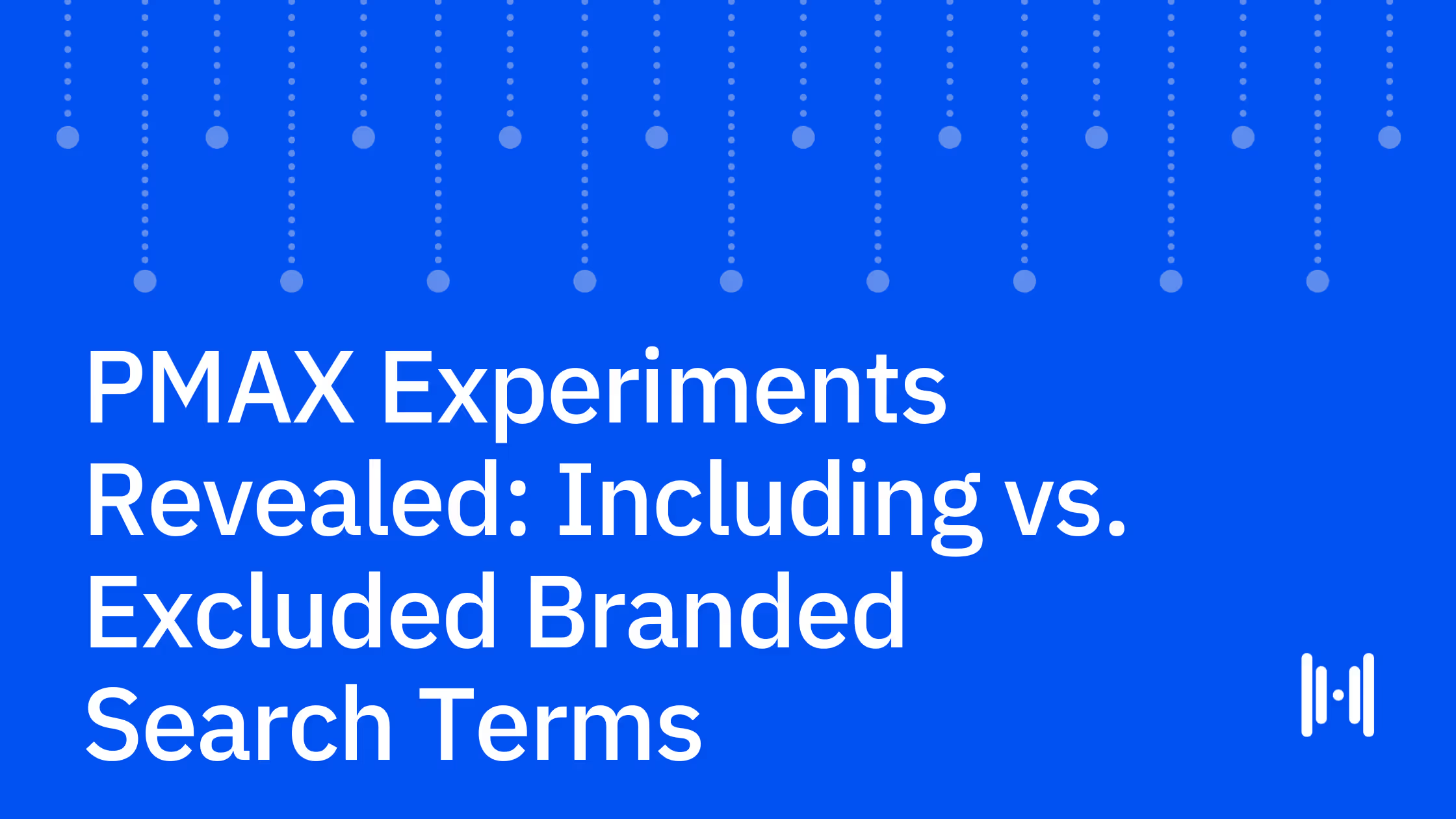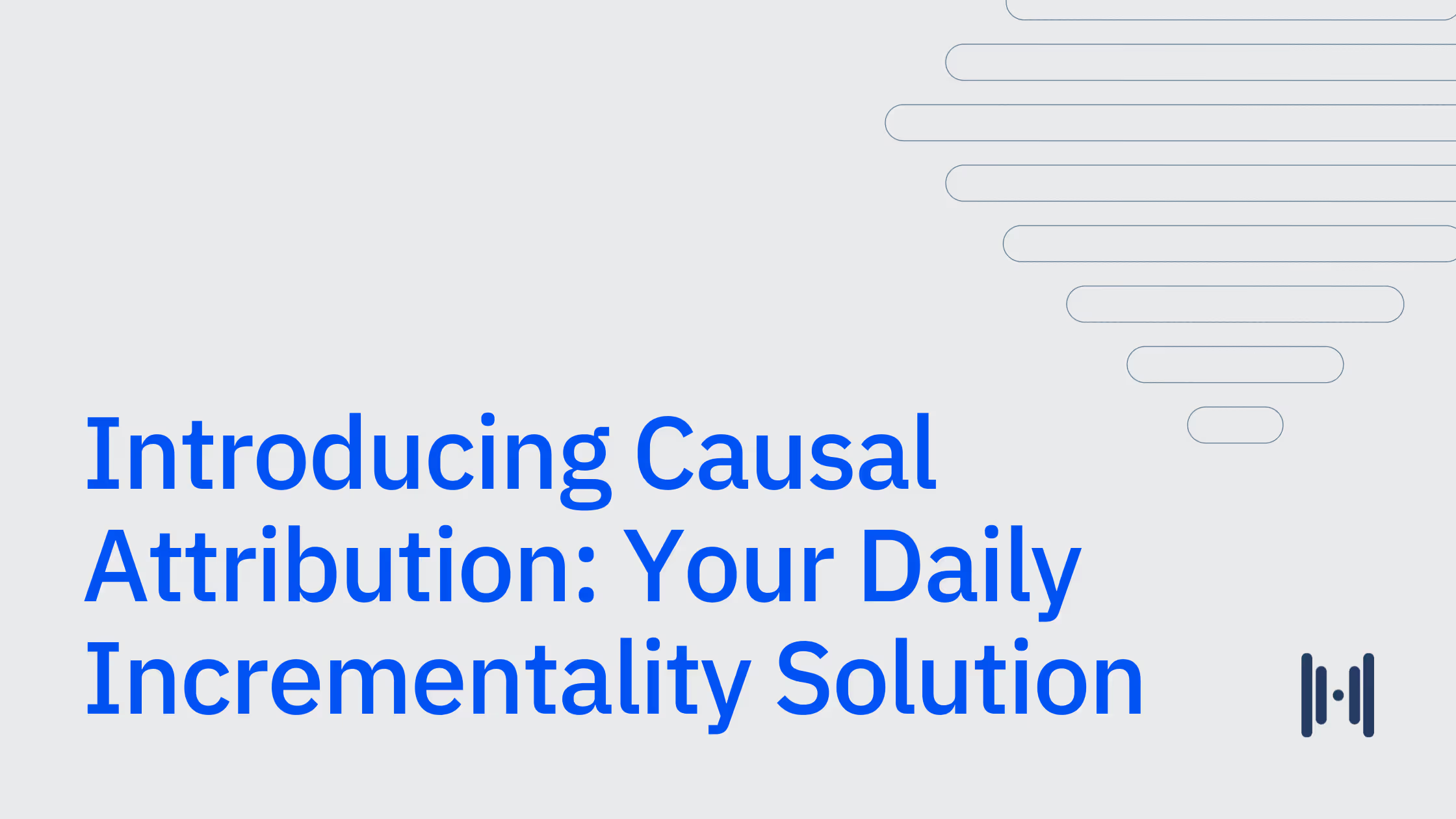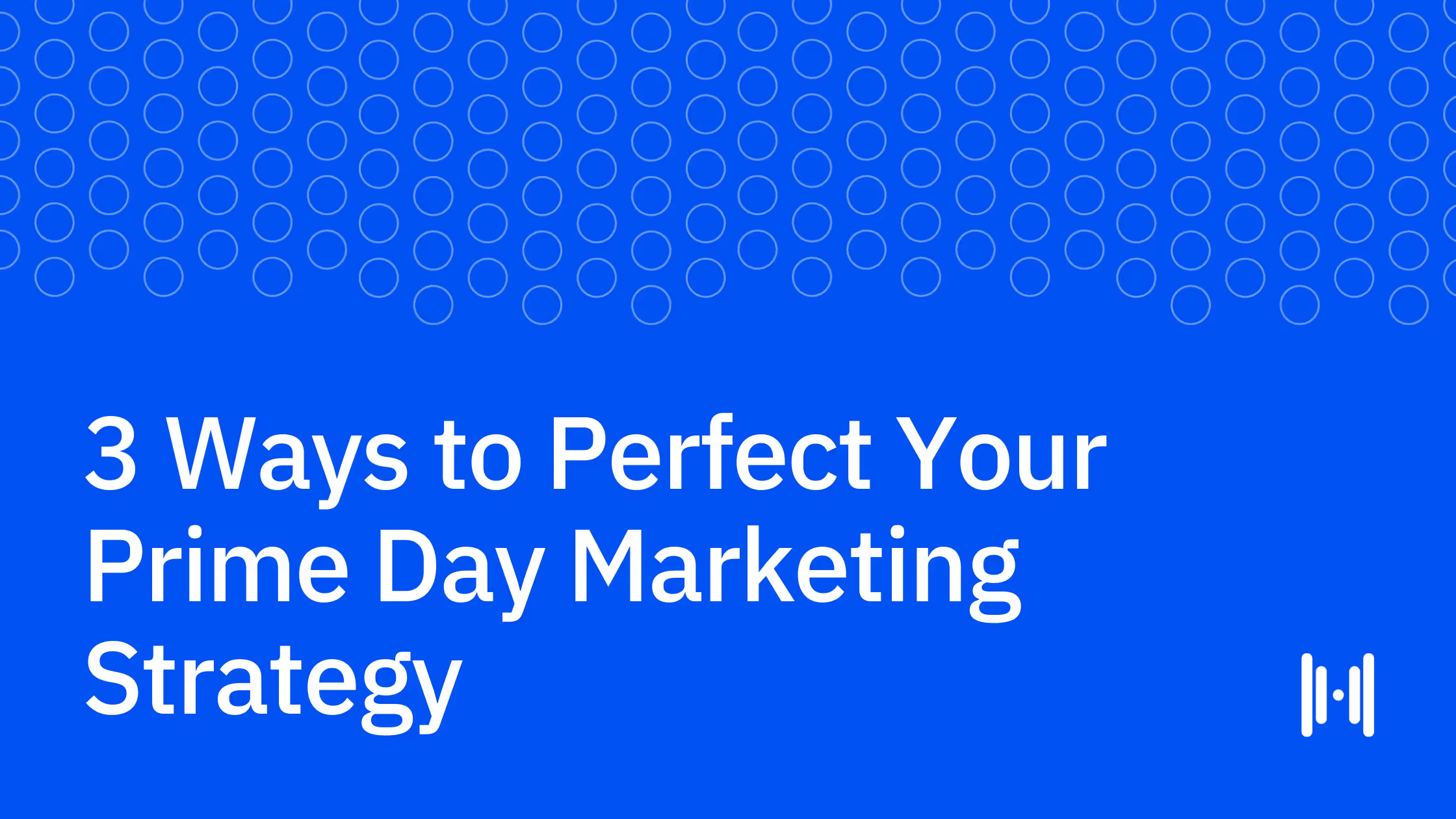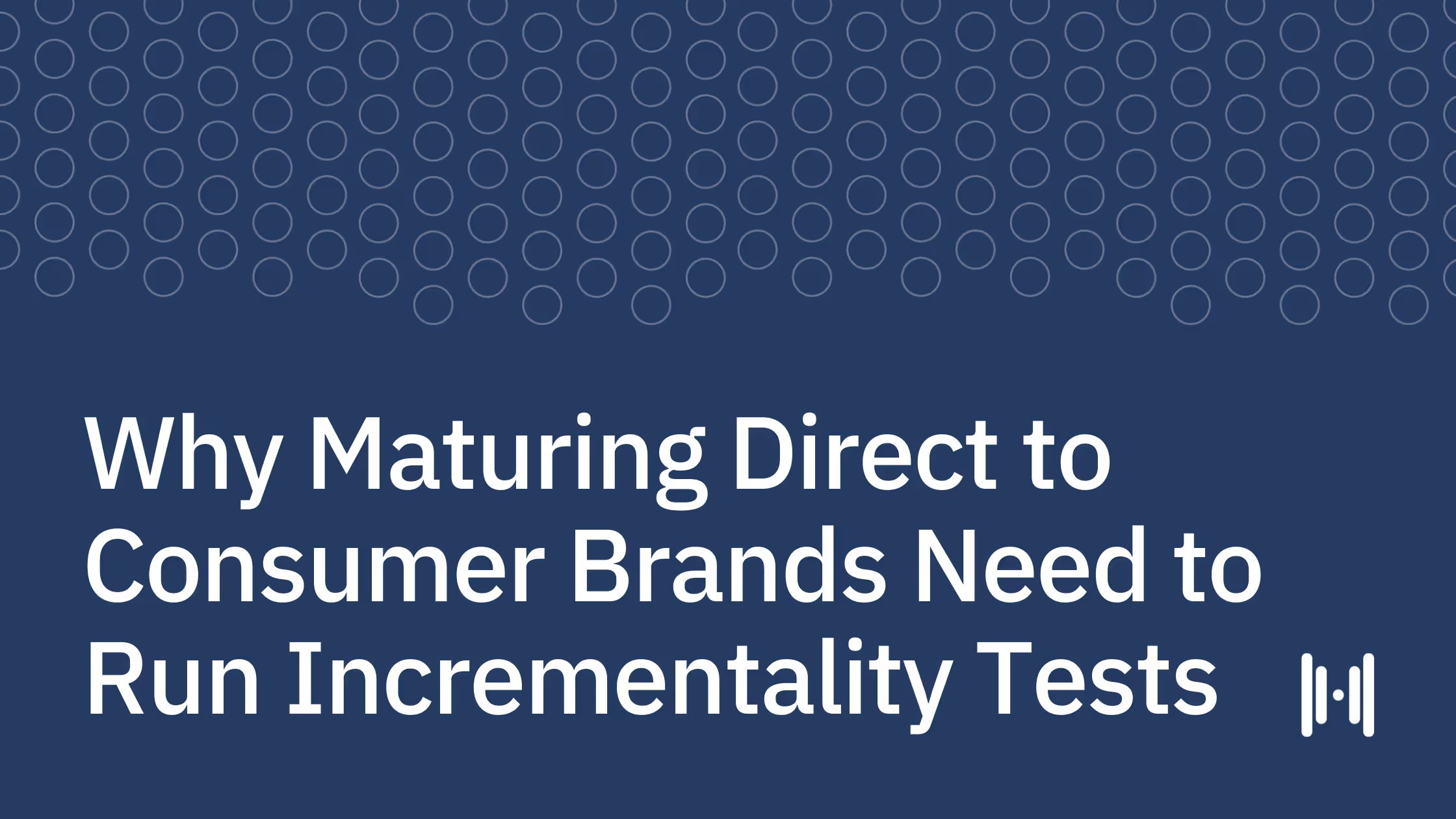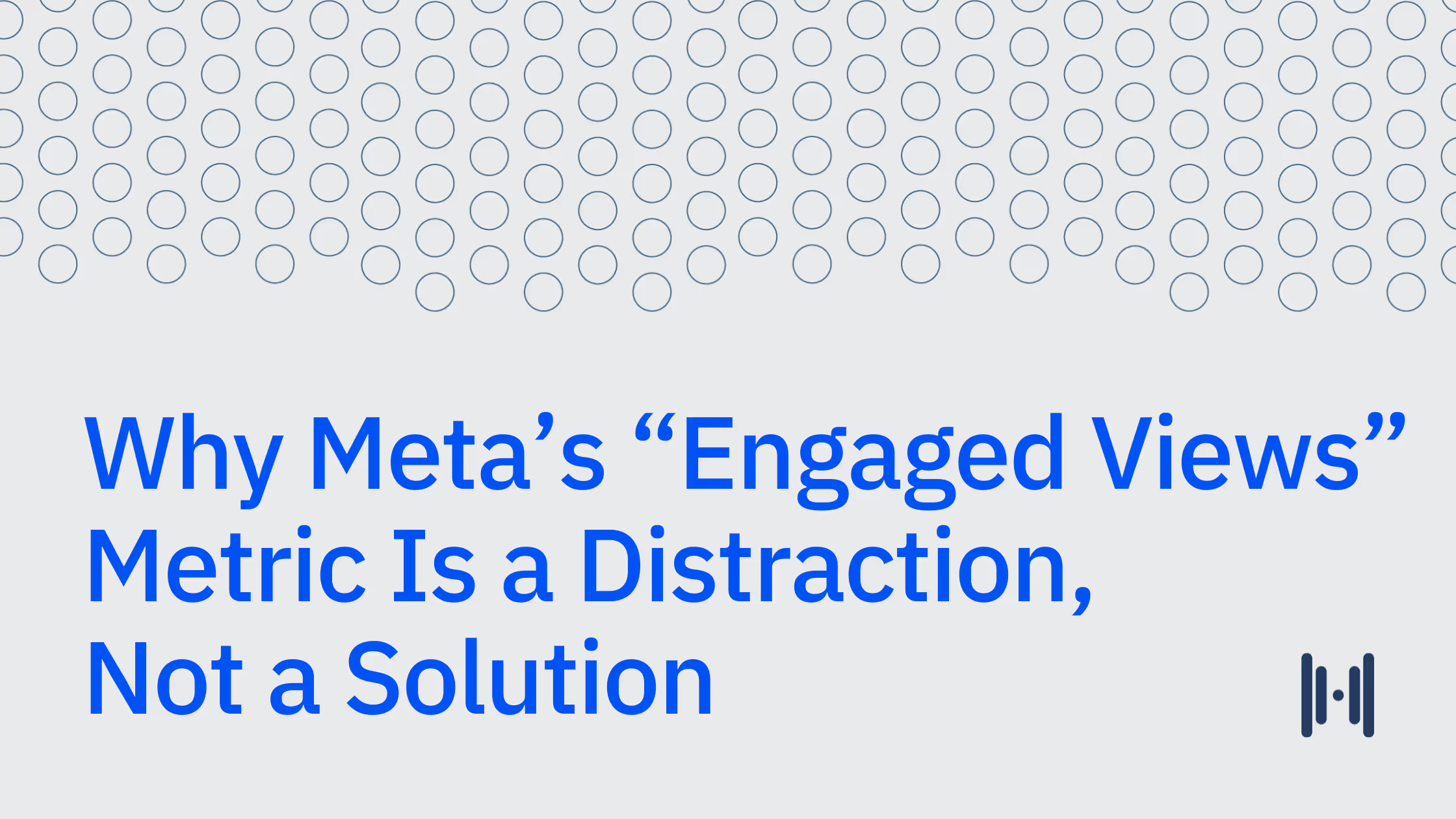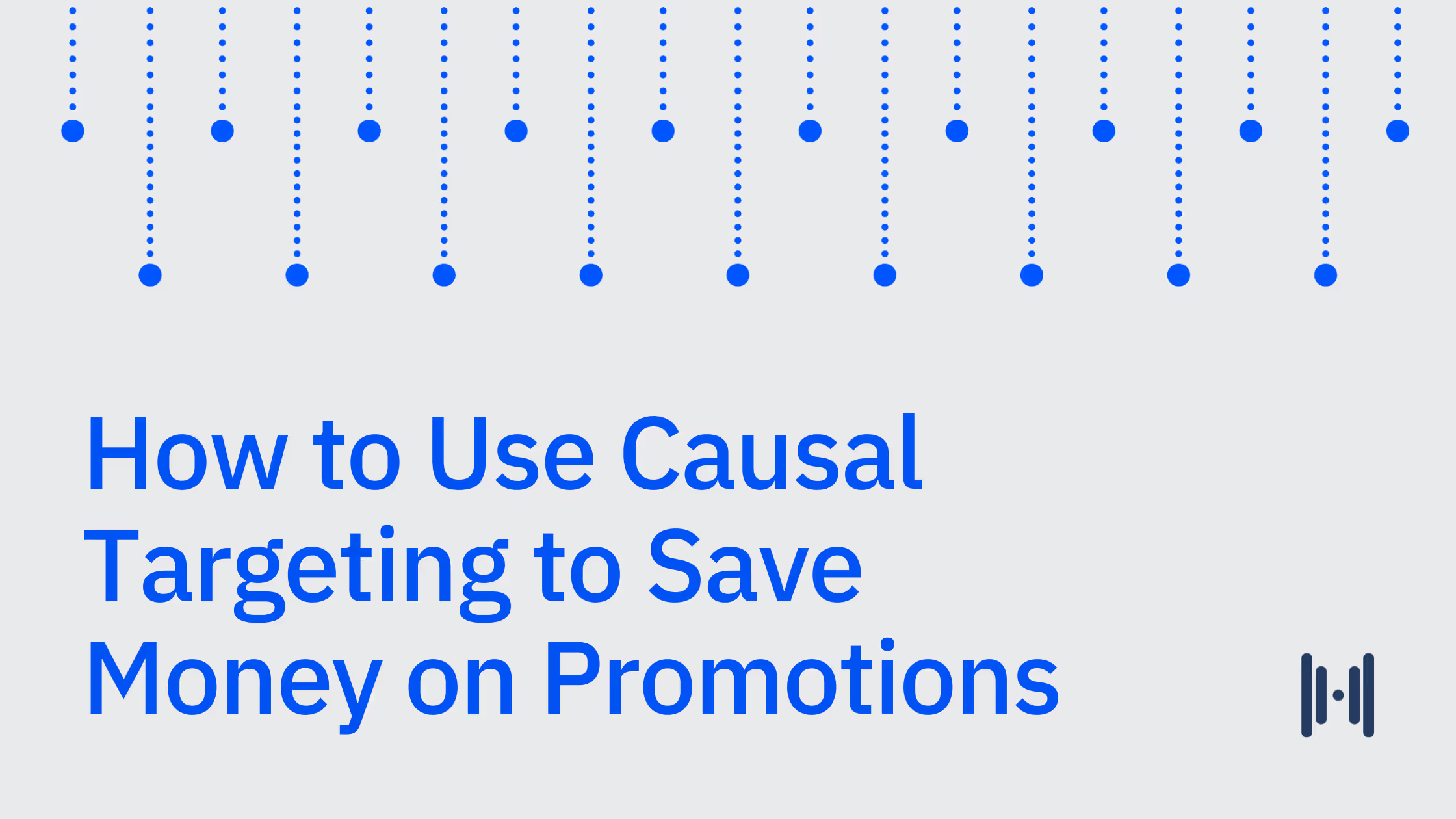
These days, we’re all measurement fiends. We measure how many steps we take each day, how many hours we sleep each night, and how much we spend each month.
Why do we measure all these things? Because knowledge is power — and the right metrics can help us optimize our everyday lives. For instance, nothing gets you to put your phone down faster than getting that weekly Screen Time Report.
The same principles apply to your marketing. With proper marketing measurement, you can better understand what’s working and what isn’t. Then, you can start making decisions that actually improve business outcomes.
But every marketer knows you need to measure impact. The bigger question is: Are you measuring the right things? Focusing on flawed marketing metrics can lead to misinformed decisions, missed growth targets, and wasted ad dollars. For those measuring at home, those are three things you certainly want to avoid.
Today we’ll outline the things you do want to measure. We’ll break down the top metrics to focus on and then list some of the best practices for measuring marketing effectiveness. At the end of the guide, we’ll offer a simple, real-world example of an impactful marketing measurement framework. Let’s dive in.
Why try to measure your marketing?
While brands pour time and money into building and targeting creative assets, they too often cut corners when it comes to measurement. So let’s unpack why effective marketing measurement is so important for marketing teams across industries.
Understanding causality
You launch your campaign, and conversions roll in. Boom: successful campaign. But not so fast. Just because you’re driving conversions doesn’t necessarily mean the campaign caused this influx of conversions.
Merely looking at correlations (e.g., campaign launches → conversions go up) can lead to all sorts of flawed decisions. You might end up counting conversions that would have happened even without that campaign. Overstating the impact of that campaign can lead to wasted ad spend.
That’s why more and more brands are prioritizing causality in their marketing measurement. And they’re measuring causality by running incrementality tests. These tests isolate the true impact of your marketing efforts through the use of randomized controlled trials.
In plain, non-data scientist language? Think of incrementality tests as similar to clinical trials in drug discovery. A pharmaceutical company gives 80% of test subjects a drug, then 20% receive a placebo. Then they measure outcomes. Did the folks who received the drug react differently from those who received the placebo?
You can apply the same logic to your marketing. Maybe you serve a Meta campaign to 80% of your audience, then 20% of your audience receives no Meta campaign. Do the customers who received the Meta campaign convert more? If so, that Meta campaign is incremental. It is clearly impacting business outcomes because when you take it away, customers convert less often.
Real-time optimization
Life moves fast in the marketing world. It’s one thing to measure causality, but if you’re doing so slowly, at irregular intervals, you’ll have a harder time acting on your causal metrics. Choosing tools that quickly surface insights and then offer recommendations for action can help you build a muscular, effective marketing strategy that responds in real time to real-world changes.
Between a volatile global economy and the fast-paced demands of modern ecommerce, you can’t rely on models that use outdated data. (Looking at you, traditional MMM.) Accurate, real-time optimization is the best way to ensure a high ROI on your marketing efforts.
That could mean investing in a tool that offers daily updates to your platform metrics or a causality-driven marketing mix model (MMM) built on a foundation of high-velocity experiments. Either way, you’ll want to make sure you can measure frequently and act quickly.
Smarter budget allocation
Most growth marketers don’t get much say over their marketing budget. Usually, the CFO gives you a number, and it’s up to you and your team to stretch that budget efficiently. But to use your ad dollars wisely, you need an effective measurement strategy.
For instance, you might find that platform metrics only tell half the story. Your top channel is highly incremental…according to that channel’s reporting. But in reality, the platform is grading its own homework. Only after leaning on a third-party measurement partner can you get at this channel's business impact. You might find you can pull back spend significantly.
Similarly, you might run an optimal spend level test and find that you can actually double down on a newer channel. That spend from your (inflated) primary channel? Why not reallocate it over to the new kid on the block and boost your overall iROAS?
Once again, focusing on causality and continuous measurement can help you adjust your allocations dynamically, helping you make the most of your ad budget.
Challenges in marketing measurement
The marketing world is full of hyperbole, but here’s one claim we support: It’s never been harder to measure marketing. First, the customer journey is complex. More channels and devices mean more touchpoints to keep track of. Add a steady stream of privacy regulations, and marketers are up against a lot.
So let’s focus on some measurement pain points, then discuss potential solutions.
Attribution complexity
- The Problem: If you work for a brand that advertises on multiple marketing channels, figuring out which channel deserves credit for conversions isn’t easy. Traditional attribution models oversimplify the customer journey, doing little to untangle the mystery. For instance, your multi-touch attribution model (MTA) might credit the last channel a customer visited before purchase, but ignore the three others they visited before getting there.
- The Solution: Embrace incrementality testing, which uses counterfactuals to help you measure which channels are actually driving conversions. Using a Causal MMM powered by experiments can help you attribute credit to your different channels.
Data accuracy
- The Problem: Sales data is complex, especially if you have several products or sell across international markets. As your model ingests data, it might miss important data points, ingest duplicates, or add incorrect data. And when it’s garbage in, it’s garbage out — and your model built on flawed data will deliver flawed insights.
- The Solution: Work with a measurement provider that takes a rigorous approach to data onboarding, without sacrificing efficiency. This might include automated methods that speed up the process and minimize the possibility of human error.
Privacy
- The Problem: In recent years, major data privacy initiatives like GDPR in the EU or CCPA in California have made user-level tracking much harder. MTA relies on user-level tracking, which means these initiatives have severely limited the scope of available data for these models.
- The Solution: Use privacy-durable solutions like incrementality testing, which doesn’t rely on cookies, pixels, or PII. This allows you to accurately measure performance while still adhering to the latest privacy regulations.
Best practices for effective measurement
Time to, once again, quote our guy Grady Booch: “A fool with a tool is still a fool.”
You can pick all the best measurement solutions in the world — but if you aren’t using these tools with rigor and care, you’ll miss out on some impactful insights. So let’s explore some best practices around marketing measurement.
Use incrementality tests that prioritize precision
Incrementality testing cuts through the noise, helping you separate incremental conversions from conversions that would have happened without your marketing campaign.
But not all incrementality tests are built the same. Working with a measurement partner that cuts corners on precision can come with a steep cost. You might end up over- or under-crediting campaigns, then misallocating budget.
Instead, work with a measurement provider that uses synthetic controls. Sparing you the Data Science 301 lesson, synthetic control methodology ensures your treatment group and control group are as characteristically similar as possible. This isolates the single variable in question — your marketing campaign — to more precisely measure impact.
Trusted measurement partners like Haus have a team of causal inference experts and PhD economists that help unpack the causality of your marketing. After all, economists specialize in the causal impact of different business decisions.
“Ultimately, what Haus is doing is attempting to understand how people respond to different types of advertising and different technologies,” says Haus’ Principal Economist Phil Erickson. “Say you’re thinking about your Meta Advantage shopping campaigns — is it causing a change in people’s behavior? To answer that question, you need to bring in some economists.”
Leverage advanced tools
Many brands still use outdated attribution models or disconnected analytics tools, which can lead to incomplete insights. Or they only focus on platform-reported metrics, which can be skewed by bias and often only tell half of the story.
And as more and more marketing teams turn to causality-driven solutions, the downside of attribution models only gets steeper. Think of Moneyball. Yes, the Oakland A’s got a leg up when they embraced data. But as more teams copied their embrace of analytics, the teams that didn’t use data-driven measurement fell even further behind.
Your best bet is working with a measurement partner, not just a “vendor.” A partner won’t just give you access to causal inference tools, then let you sink or swim. They’ll continue working with you after you’ve surfaced insights, then use their analytical prowess to help you act on those insights and tie them to actual business outcomes.
Prioritize transparency
Incrementality testing is meant to give you a deeper view into your marketing performance. But that clarity isn’t worth much if your measurement partner is misleading about results. For instance, they might fail to disclose test power, conceal confidence intervals, or be cagey about methodology.
If you can’t trust your results, how can you act on them? It’s that simple.
Work with a provider that discloses test power and confidence intervals, and don’t be afraid to ask for the truth about a result. That’s the approach at Haus, where transparency is the norm. “We’re not just making results look good so the customer feels good,” says Measurement Strategist Alyssa Francis. “We’ll tell a customer if a result is noisy and calls for a retest.”
Case study: Ritual’s use of incrementality testing to improve TikTok ad performance
Let’s close out with an example that shows what effective marketing measurement looks like in practice.
The Challenge: Health and wellness brand Ritual was branching out into TikTok, but its team wasn’t sure about the actual impact of this new channel. They needed the right measurement solutions to help them understand performance.
The Solution: Ritual’s marketing team leaned into causality, first running a 2-cell test with Haus that measured lift. The result? No lift at all. Still, they were convinced their audience was on TikTok, so instead of abandoning the channel, they changed optimization settings on their TikTok campaigns, refreshed creative, and re-tested during a period of higher demand.
The Outcome: With an adjusted approach to targeting and creative, Ritual achieved an 8% increase in incremental subscriptions. TikTok was incremental after all — it just took a bit of refining.
Measure smarter, grow stronger
Focusing on the right metrics is the first step to better data-driven marketing decisions. The Ritual team used incrementality testing to get a sense of their marketing ROI, used those performance indicators to adjust their campaigns, then tested again to make sure it worked. It’s an excellent example of a brand building a culture of experimentation, then reaping the rewards.
Marketing in 2025 isn’t easy. You’re already dealing with a tidal wave of privacy regulations, customer touchpoints, and economic uncertainty. Following the wrong metrics will only put you behind more. But when you embrace metrics that really get at impact, you’ll be well on your way to smarter decisions, stronger marketing performance, and higher confidence.
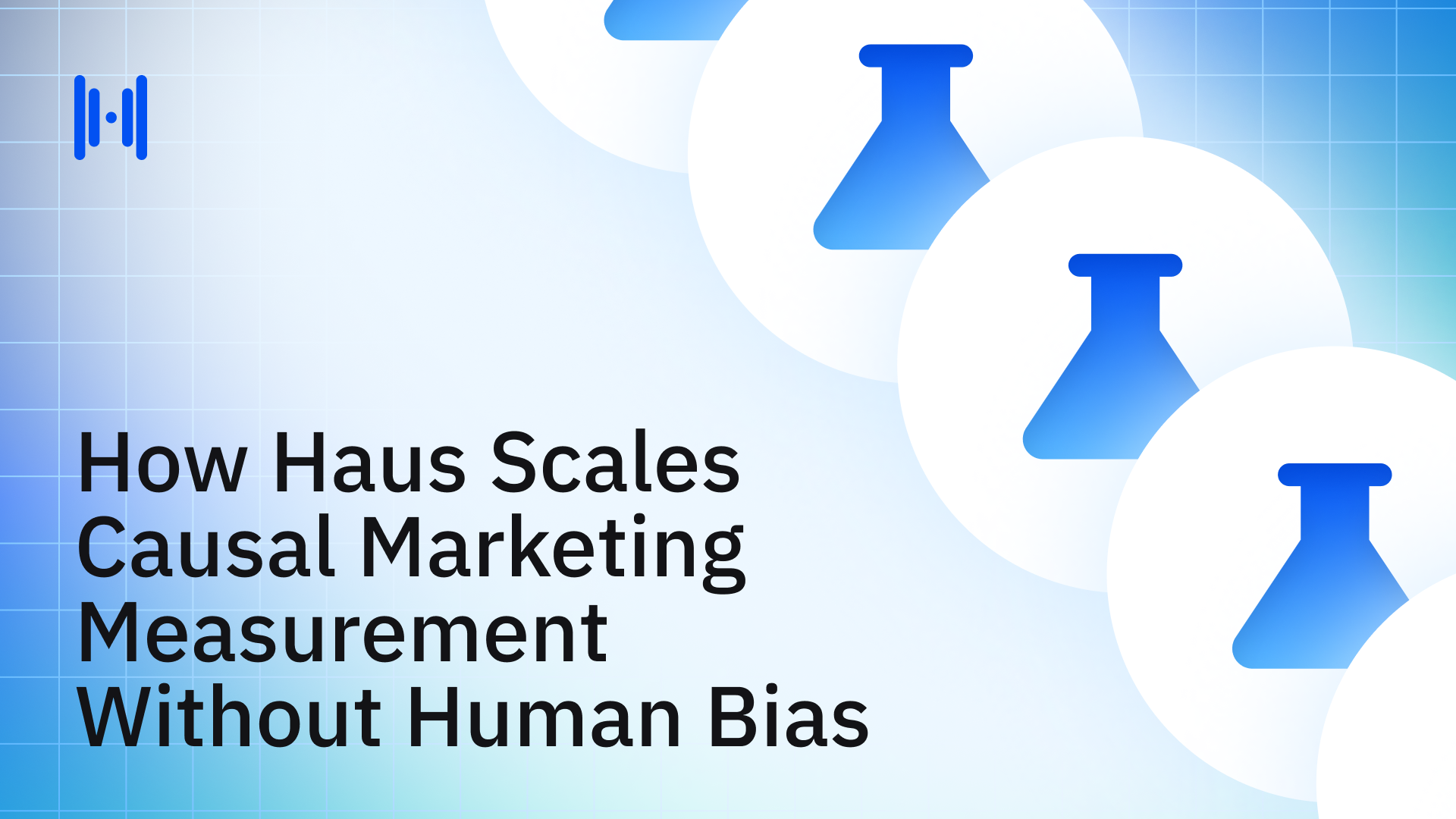

.png)
.png)
.png)
.png)
.png)
.avif)
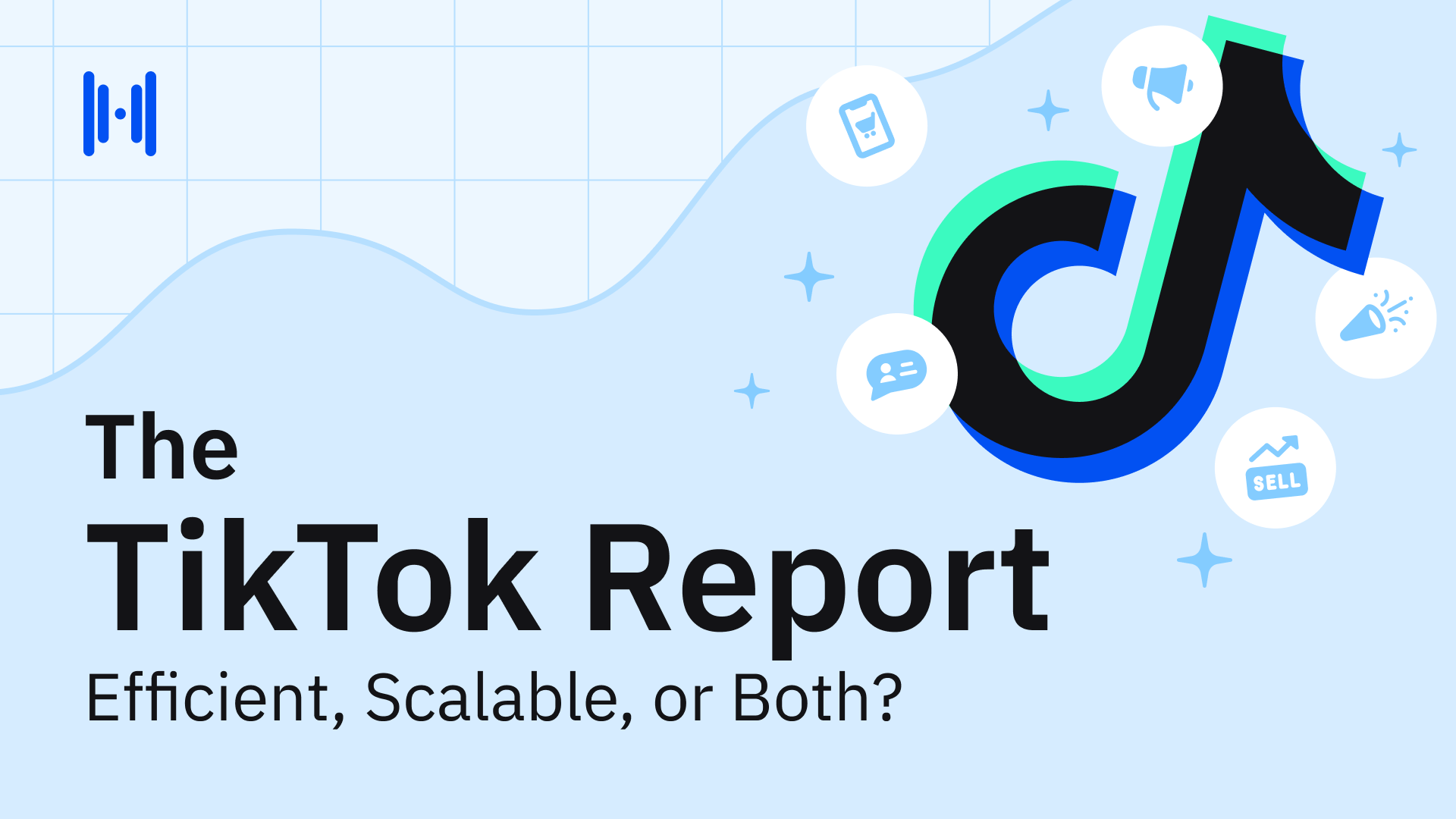

.png)
.png)
.png)
.png)
.png)
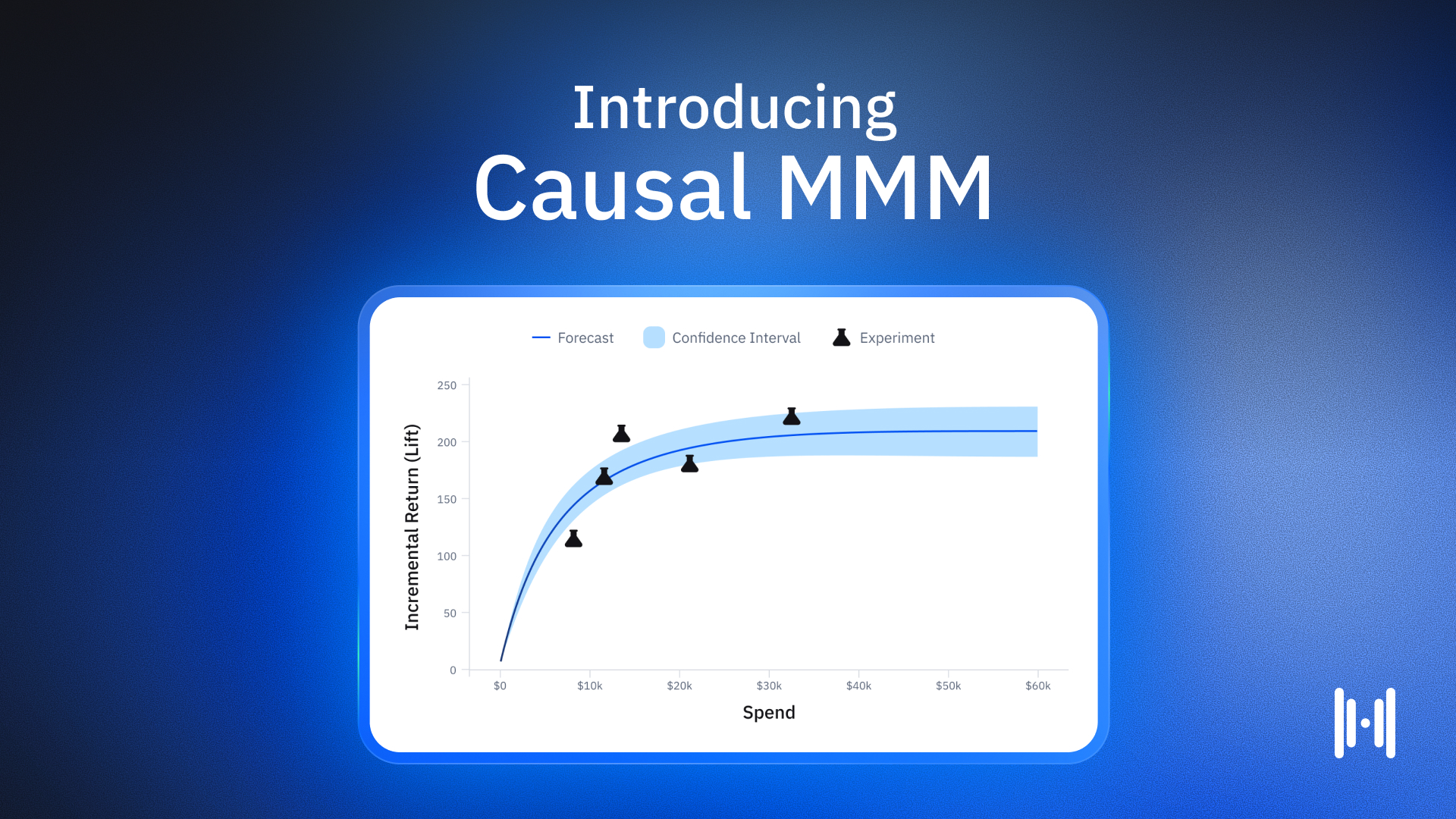
.avif)
.png)
.png)
.png)
.png)
.png)
.png)
.png)
.png)
.png)
.webp)
.webp)
.webp)
.webp)
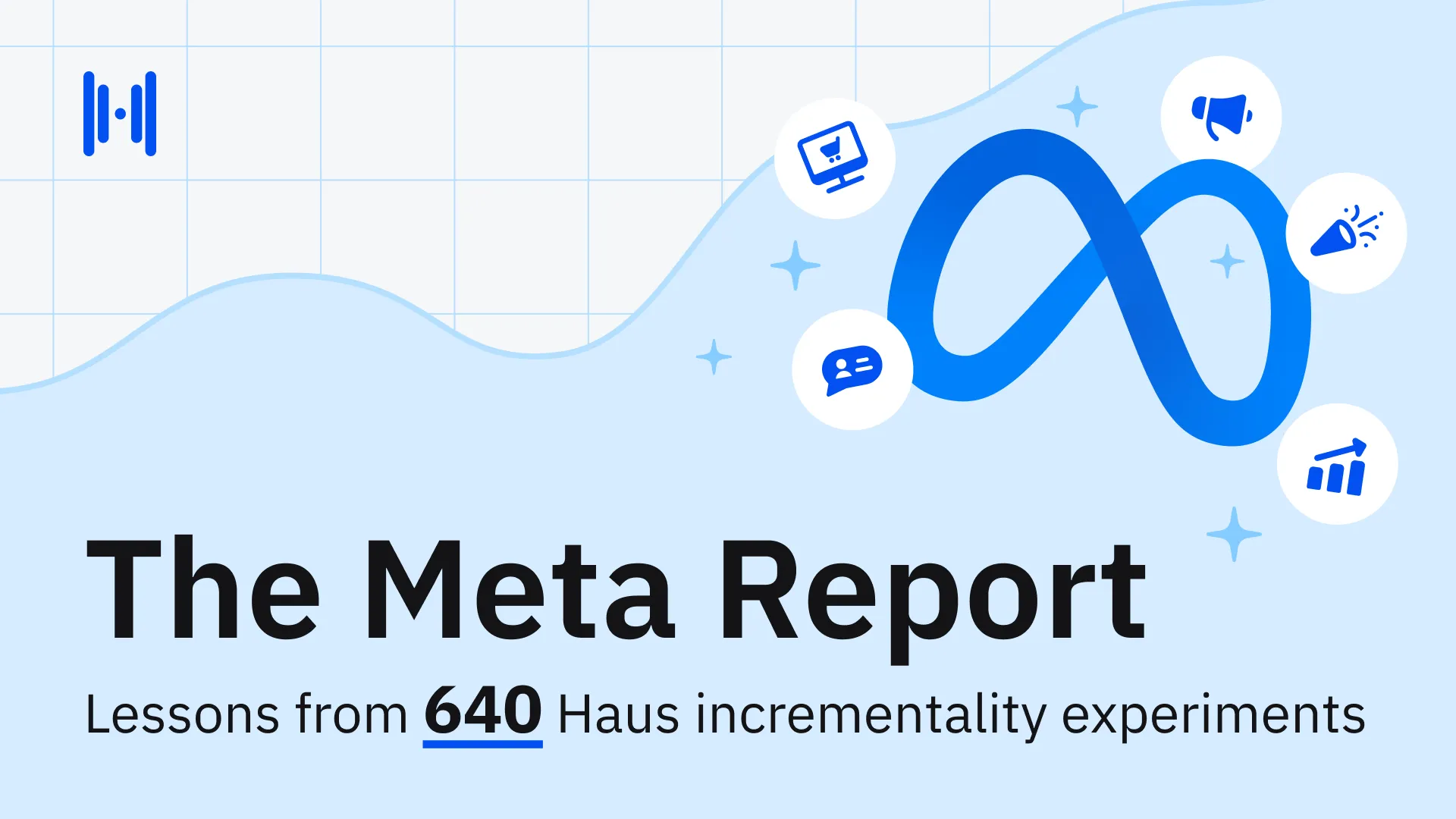
.webp)
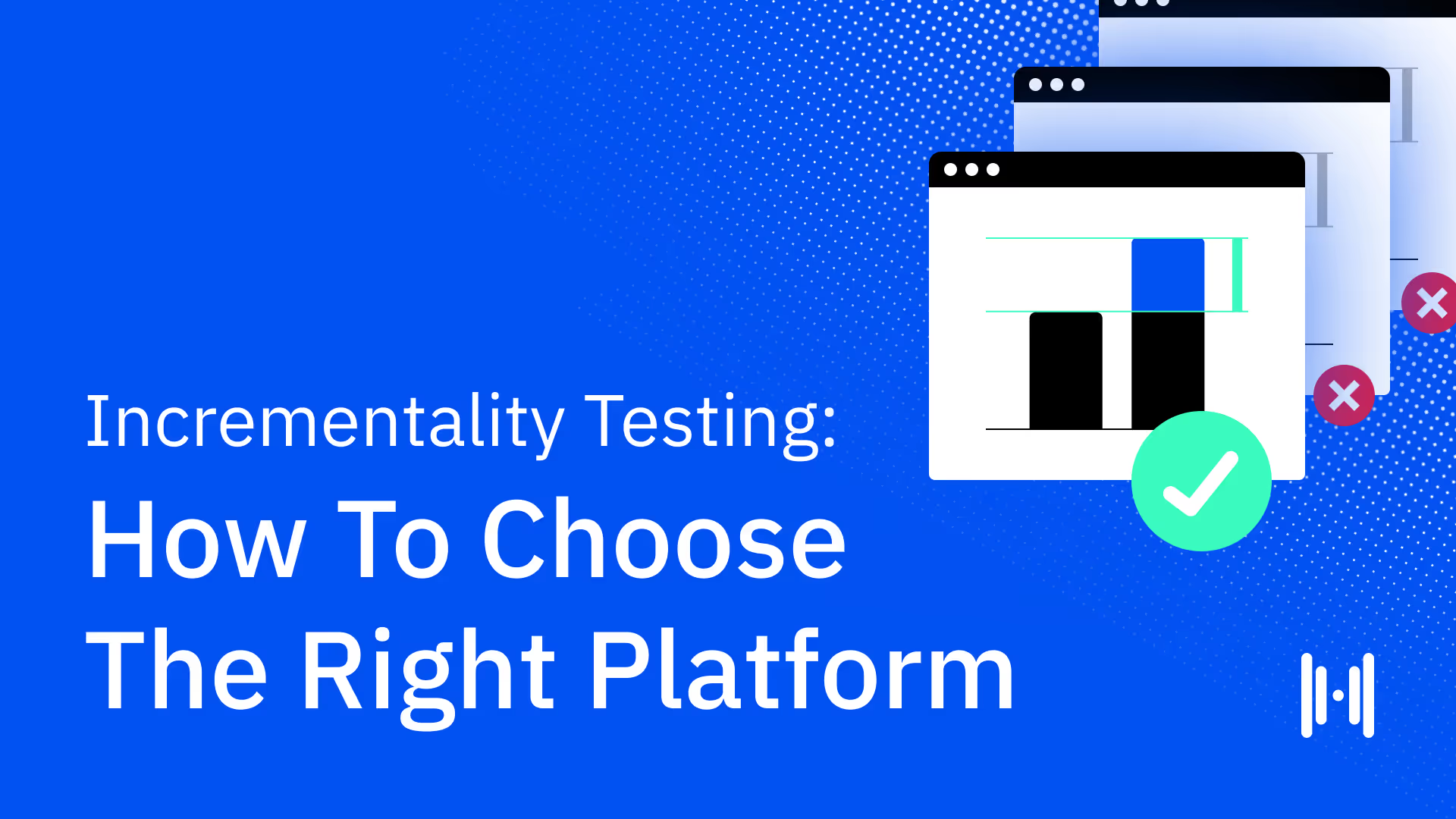
.webp)
.webp)
.webp)
.webp)
.webp)
.webp)
.webp)
.webp)
.webp)
.webp)
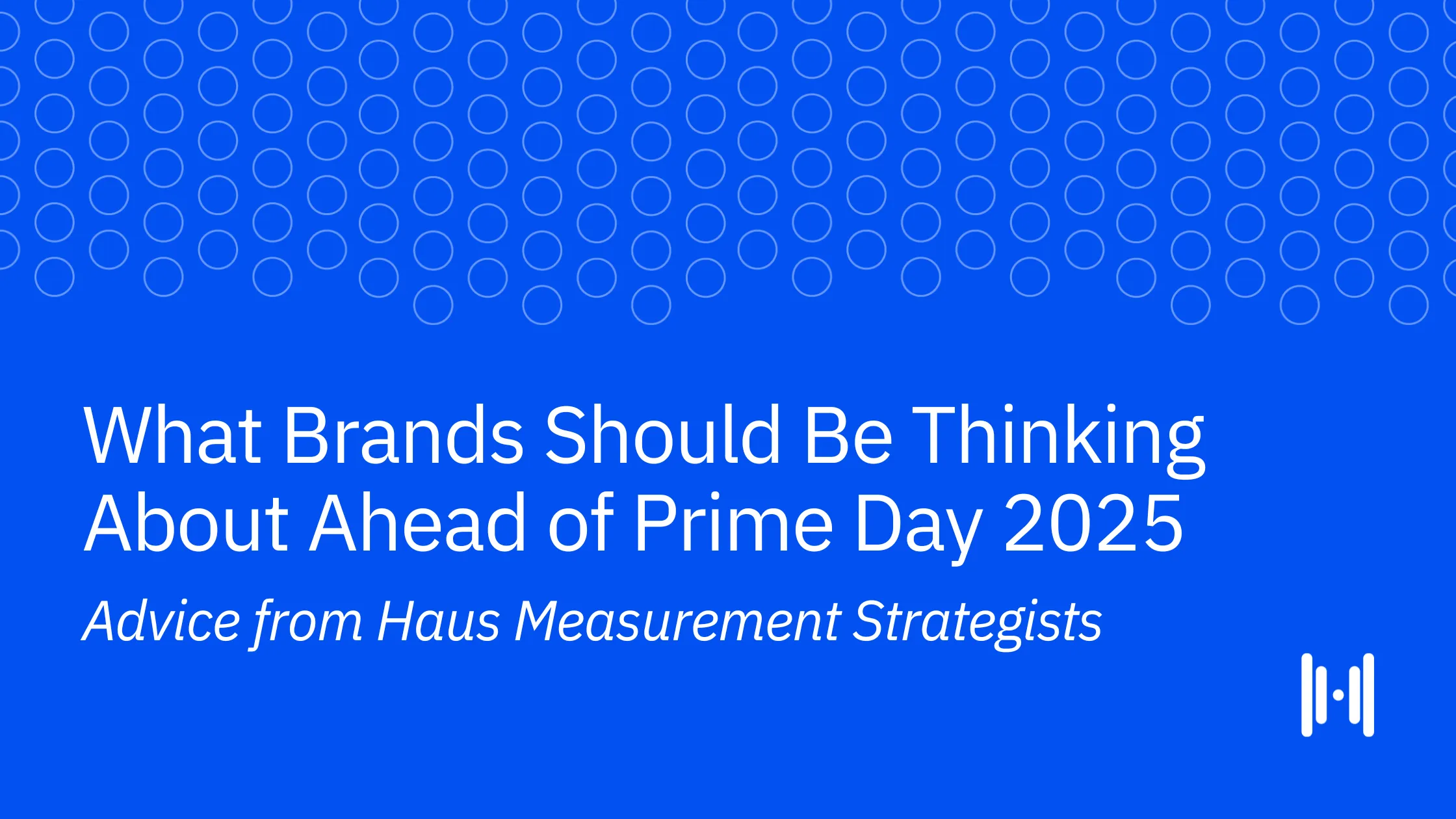
.webp)
.webp)
.webp)
.webp)
.webp)

.webp)


.avif)
.avif)



.avif)
.avif)
.avif)

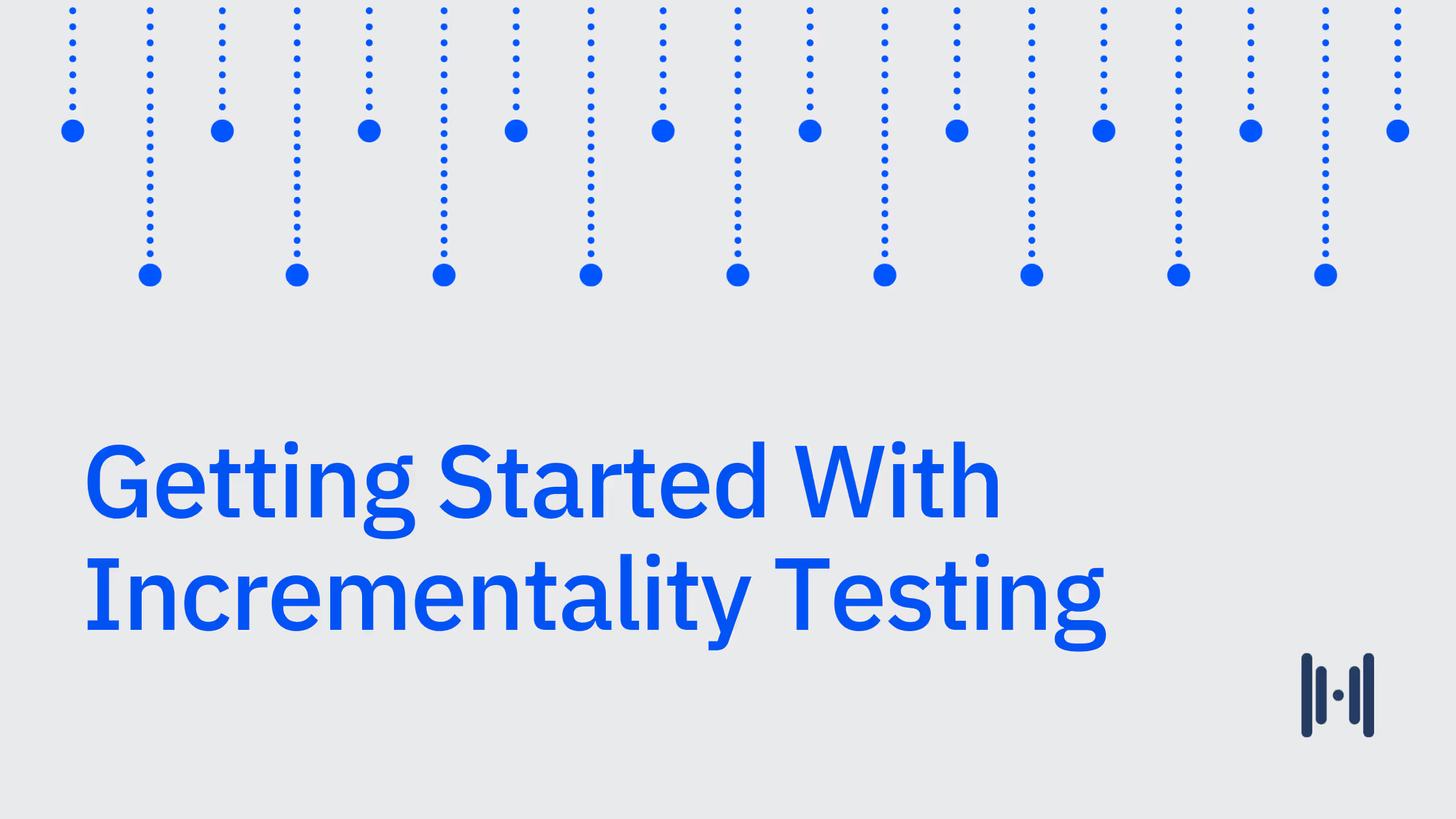
.avif)
.avif)
.avif)
.avif)
.avif)
.avif)




.png)
.avif)
.png)
.avif)
